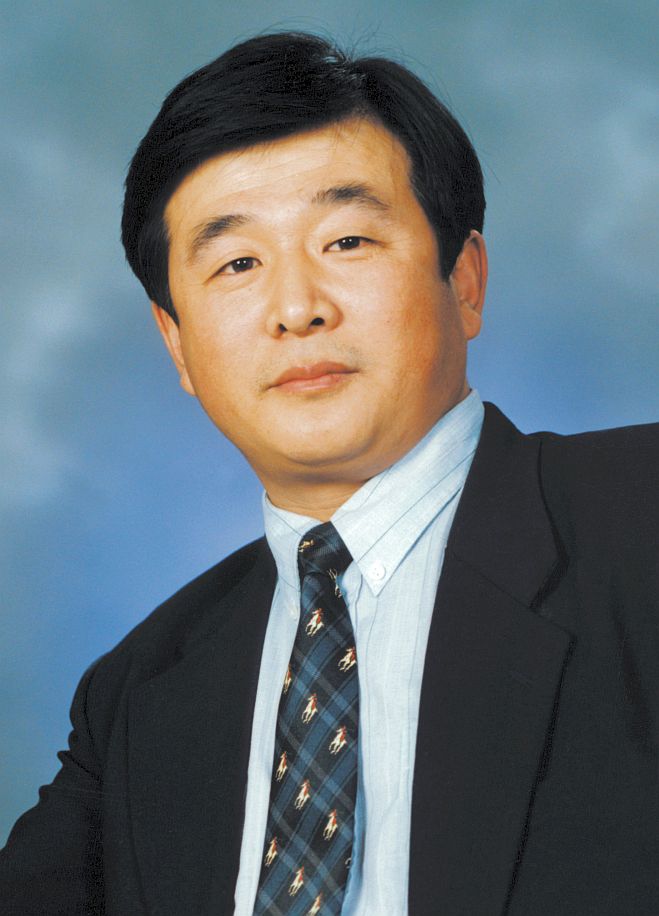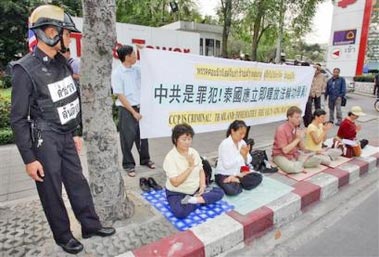 Qigong is a system of exercises, meditations, and teachings that renew the body and mind. It is an aspect of Chinese medicine which involves the coordination of breathing patterns with physical postures and motions of the body.
Qigong is a system of exercises, meditations, and teachings that renew the body and mind. It is an aspect of Chinese medicine which involves the coordination of breathing patterns with physical postures and motions of the body. The Mandarin word gong means work or technique and qi is the breath so qigong is ‘breath work.’ It has been a Buddhist meditation practice for two thousand years. More recently many cults have exploited the religious aspect of qigong. The most notable example is the Falun Gong (also spelt Falon Gong) and is also less commonly known as Falun Dafa. Falun Gong’s worldwide popularity grew to the point that the Chinese government banned their practice outright in 1999. Amnesty International says at least ten followers died in custody in the year following the ban. China's crackdown on the Falun Gong has turned what was a little-known group, into an international cause celebre.
Falun Gong means "Practice of the Wheel of Law (or Dharma)." In May 1992, Li Hongzhi introduced it publicly as a qigong exercise in the northern city of Changchun. Li Hongzhi is a former trumpet-player from and is known as "Living Buddha" to his devotees. The Chinese government do not number among these devotees; they call him a leader of an "evil cult" and a dangerous charlatan and have ordered his arrest. Luckily for him, he is now beyond the clutches of Chinese officials having fled to New York in 1998 where he owns two houses bought on the proceeds of his religious earnings.
 Li himself would appear to be several bricks short of a great wall. He says that he is a being from a higher level that has come to help humankind from the destruction it could face as the result of rampant evil. He also believes aliens walk the Earth and he has reportedly said he can walk through walls (Chinese or otherwise) and make himself invisible.
Li himself would appear to be several bricks short of a great wall. He says that he is a being from a higher level that has come to help humankind from the destruction it could face as the result of rampant evil. He also believes aliens walk the Earth and he has reportedly said he can walk through walls (Chinese or otherwise) and make himself invisible. Nonetheless the Chinese authorities take his religion deadly seriously. In 1999, the government estimated the number of followers as 2.1 million in China(the movement itself claims 70 million). The crackdown started after 10,000 practitioners assembled in peaceful protest at the Beijing Central Appeal Office in April that year. This was staged directly outside the Beijing “Kremlin” Zhongnanhai, the complex of buildings that form the headquarters of the Chinese Communist Party. They were protesting against beatings and arrests made at an earlier protest against a university that published a magazine criticising qigong practices. Though the Zhongnanhai protest ended peacefully, the government were alarmed at such a large protest in their backyard. Then President Jiang Zemin was particularly concerned and is believed to have given the order to make the organisation illegal in June 1999.
This was quite a fall from grace. After he first introduced Falun Gong to the world, Li Hongzhi was granted several awards by Chinese organisations to continue promoting what was then considered to be a wholesome practice. In the first few years after 1992 Li toured the country lecture circuit to large audiences. Falun Gong’s popularity grew thanks to word of mouth and the growing power of the Internet.
Now the Communist Party has destroyed books and other materials about Falun Gong, and blocked access to internet resources about the topic. Li Hongzhi is blacklisted by the Great Firewall of China. According to a 2004 Amnesty International report, "detained Falun Gong practitioners, including large numbers of women, were at risk of torture, including sexual abuse, particularly if they refused to renounce their beliefs."
In April 2006 A Falun Gong protester used press access issued to the New York based Epoch Times to shout over Chinese President Hu Jintao at the White House. "President Bush, stop Hu Jintao's persecution of Falun Gong! Stop the killings!" Wang yelled before being escorted away. The newspaper denies any direct ties to Falun Gong. ”We are not funded by Falun Gong, we don't speak for Falun Gong, and we don't represent Falun Gong," said Epoch Times spokesperson Stephen Gregory.
 Falun Gong protesters can be seen in many big cities, including Brisbane, every day. They are extremely vocal and creative and may yet prove to be an Achilles heel for the Chinese government. China will be anxious to keep them quiet in the lead up to the Beijing Olympics, but they have proved resourceful and have a knack of keeping in the public eye. Falun Gong claims up to 100 million adherents, while the Chinese government says 2 million. It's impossible to verify either way, but these millions of once law-abiding citizens are now outlaws. As their open letter to Bush attests, they have the ability to create a public relations nightmare for Jintao.
Falun Gong protesters can be seen in many big cities, including Brisbane, every day. They are extremely vocal and creative and may yet prove to be an Achilles heel for the Chinese government. China will be anxious to keep them quiet in the lead up to the Beijing Olympics, but they have proved resourceful and have a knack of keeping in the public eye. Falun Gong claims up to 100 million adherents, while the Chinese government says 2 million. It's impossible to verify either way, but these millions of once law-abiding citizens are now outlaws. As their open letter to Bush attests, they have the ability to create a public relations nightmare for Jintao. Li Hongzhi may yet have the last laugh on his old friends in the Party.
No comments:
Post a Comment